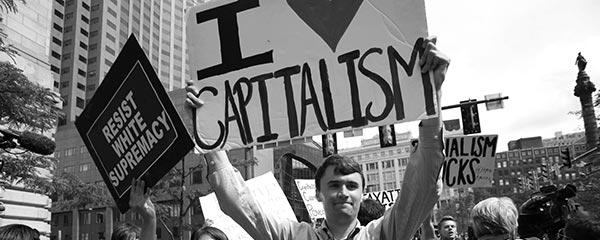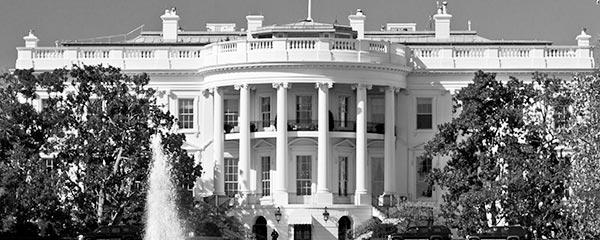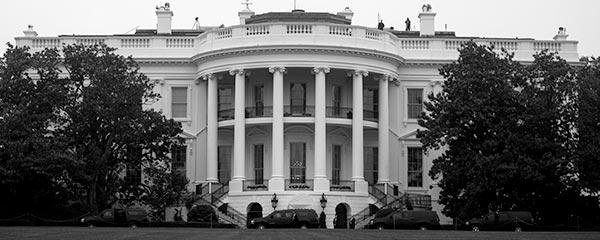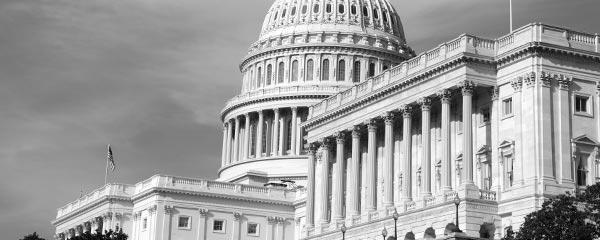Government is the most important problem facing the United States today, according to the American people. This makes government a critically important issue in the 2020 election. Most of the presidential candidates, however, are addressing government only indirectly or implicitly as they discuss proposals, policies and plans. There is little direct discussion of the role of government and what it should or should not be doing, as I think the public wants.
My colleagues Jeffrey Jones and Lydia Saad recently did an admirable job of summarizing new and important information about public opinion and government contained in ║┌┴¤═°'s annual Governance survey.
One of the most significant findings: There is no evidence of strong majority support for government to become more heavily involved in Americans' lives in an effort to solve problems and make things better for the nation's citizens.
This is important. As we know, a number of the Democratic candidates for president have implicitly assumed the opposite -- that there is, or should be, a highly receptive public thirsting for the government to greatly expand its role as the primary means of fixing society's problems. But I just don't see that in the public opinion data.
It's not that the American public is overwhelmingly opposed to more government action. Instead, Jeff and Lydia's review shows just how split the public is on this issue.
-
Using a 1 to 5 scale, 42% of Americans lean toward saying government should take active steps in every area it can to try and improve the lives of its citizens, while 29% lean toward saying government should do only what is necessary to provide the most basic government functions; another 29% are in the middle.
-
A longtime ║┌┴¤═° trend question shows that 47% of Americans say government should do more to solve our country's problems, while 49% say government should do less and leave more to individuals and businesses.
-
Only 25% favor paying more taxes in order to receive more government services. More, 42% say they want fewer services and lower taxes, while about a third like things as they are now.
-
Over half of Americans, 56%, say government currently has too much power.
As these data show, there has been . There is no public consensus on whether the government should expand to take on more roles in solving societal problems (and by necessity raise more money through taxes to do so) or shrink its involvement.
We know there is an enormous (and historical) difference in views on this issue between the partisan tribes that make up our nation today. Those who identify as or lean Democratic generally favor more government intervention in our lives, while those who identify as or lean Republican are inclined to favor less government intervention.
But I'm looking here at the country as a whole. If we are going to move beyond the ideologically rigid, dysfunctional system that Americans heartily dislike, we will need to view the country as a broad social entity attempting to survive and thrive in an ever-challenging worldwide environment -- not as two warring tribes convinced that they, and only they, have truth.
The appropriate role of government is a central argument that needs to be faced and debated. Nuanced arguments about the specifics of intricately contrived plans (all of which will be revised, changed and overhauled before they become law) have their place, but they are less important than broad discussions of just how involved government should or should not be in addressing the challenges facing the country, one by one. Political candidates need to debate the rationale behind each issue where they call for increased government intervention -- as well as to debate each point where they call for decreased government intervention.
The data show that Americans, in fact, have pretty discriminating views of the areas where they believe government has an appropriate role to play and where they think government should be less involved. There is no "one size fits all" view of government's role.
Americans clearly want the government to take responsibility for combating foreign threats, regulating unsafe products, preventing discrimination, ensuring efficient and effective transportation, and protecting the environment. Americans also overwhelmingly favor significantly increased government spending on repairing and maintaining the nation's infrastructure, as I've previously reviewed in detail. The fact that this has not occurred, , and that we rarely hear about infrastructure in the candidate debates is a telling example of the dysfunctions of our government system. We have rare public agreement on this issue, and apparent agreement on the part of elected officials representing that public, but no action.
The public is less interested in the government getting involved in protecting U.S. corporations, reducing inequality and upholding moral values. There is more ambivalence when it comes to the government ensuring that all citizens have a minimum standard of living and ensuring that everyone has a job.
Healthcare has occupied a great deal of candidate debate time, which is a good thing. As I summarized a few months ago, Americans have mixed views on the government's role in addressing healthcare issues, with no strong consensus on any one approach. This is a highly appropriate topic for debate.
Which brings me to a final point: Americans' ambivalence when it comes to any "big" entity in our society today, including big government and big business. Americans have negative views of the federal government and relatively low confidence in big business. But when we last asked Americans if big government, big business or big labor poses the greatest threat to the nation, they were overwhelmingly most likely to choose big government.
Additionally, Americans see business as doing a better job than government in some areas. Seven in 10 Americans agree that businesses can do things more efficiently than the government, and there is more disagreement than agreement with the proposition that "the way the government does things is fairer and more just to everyone involved than the way businesses do things." Further, Americans overwhelmingly have a positive view of free enterprise (87% positive) and entrepreneurs (90%), and they have a more positive view of both capitalism (60%) and big business (52%) than they do of the federal government (38%).
So again, it's not at all clear that attempting to change things in order to give big government much more influence in our society and attempting to curtail the influence of big business is exactly what Americans want.
Implications
The appropriate role of government in American society today should be the issue at the crux of the 2020 presidential election. Two of the front-running candidates for the Democratic nomination, Bernie Sanders and Elizabeth Warren, have made the implicit assumption that Americans want government to get much more involved in solving our nation's problems and righting wrongs across a wide variety of societal functions, including healthcare, education, the way businesses operate, energy, agriculture, housing, banking, and personal income and wealth. At the same time, President Donald Trump has criticized the size and scope of the very government he heads, and the Republican Party has argued that "much of what the federal government does can be improved, much should be replaced, and much needs to be done away with or returned to the states."
Neither of these approaches is exactly what the American people want, as we have seen. Certainly, as a result of the clash of these two approaches, some acceptable solutions may emerge. But it would be much more effective if political candidates recognized that the public is ambivalent about its federal government and doesn't accept rigid, ideological assumptions that the federal government is either the salvation for the nation's problems or the bane of the nation's existence.
The public would benefit most, the data show, from reasoned debate, discussion and justifications for exactly what the government should or should not be doing in each major area of our society, with all the risks and benefits that involvement entails.
Learn more about public opinion metrics that matter for the 2020 presidential election at ║┌┴¤═°'s 2020 Presidential Election Center.




